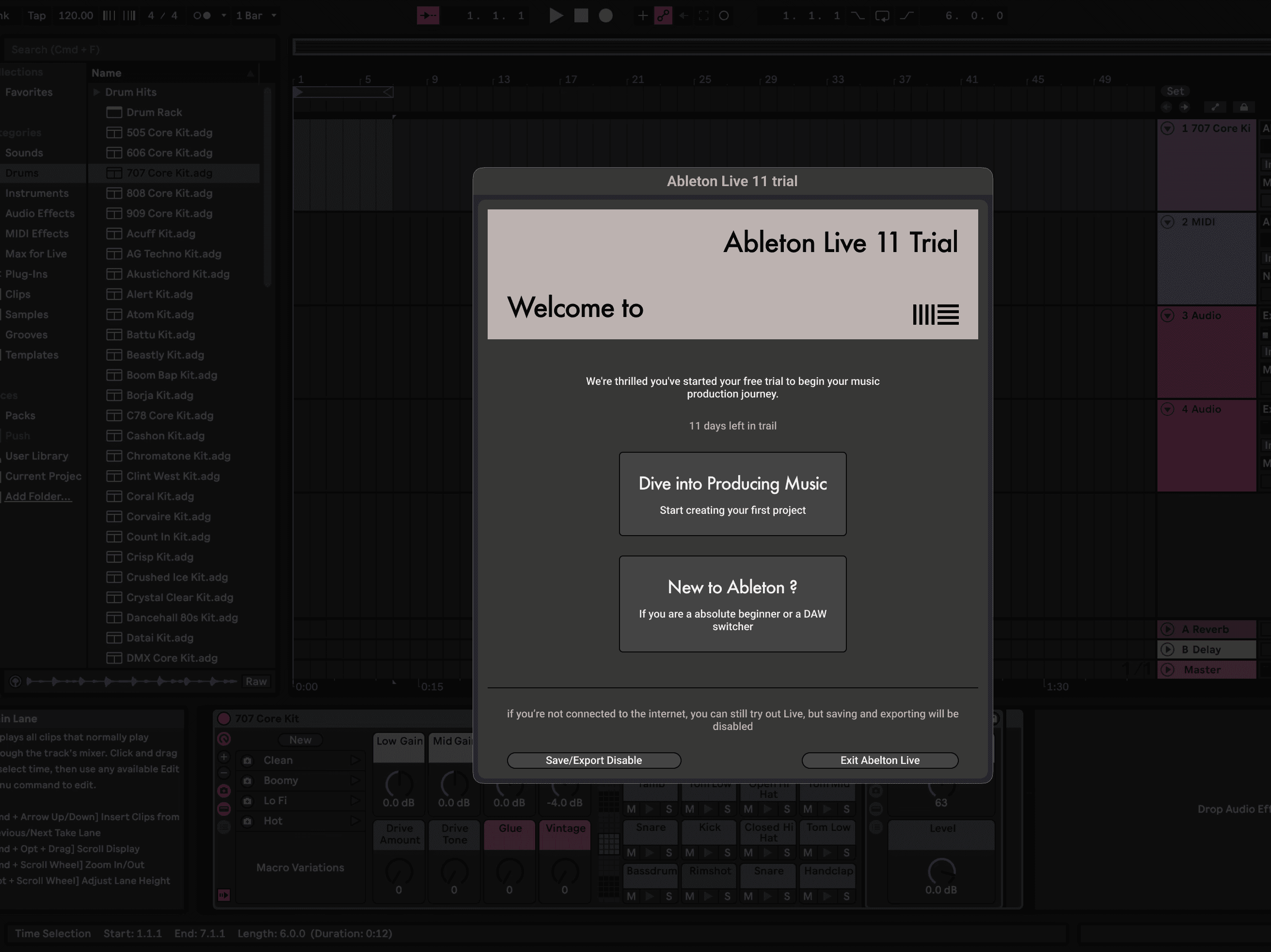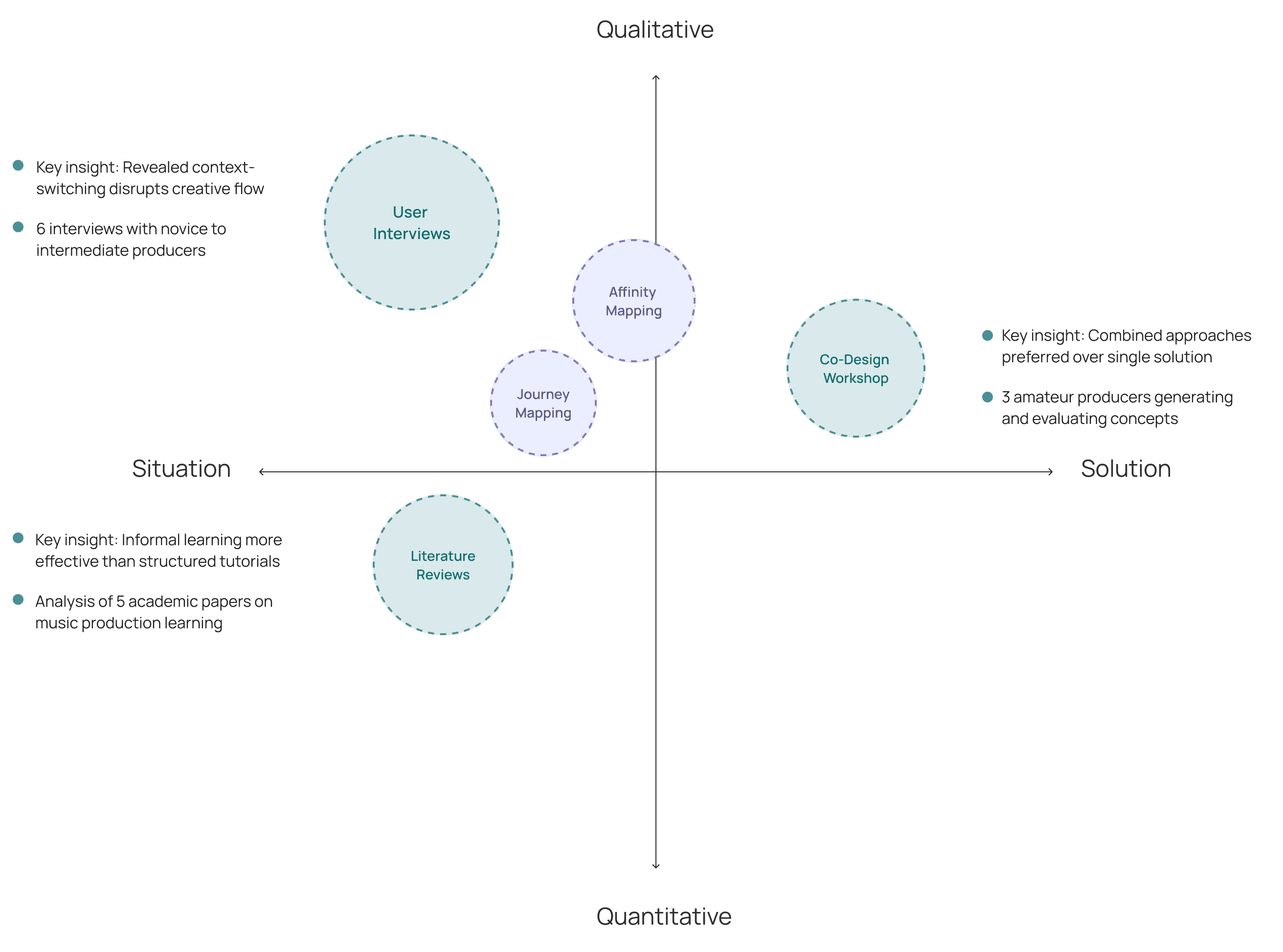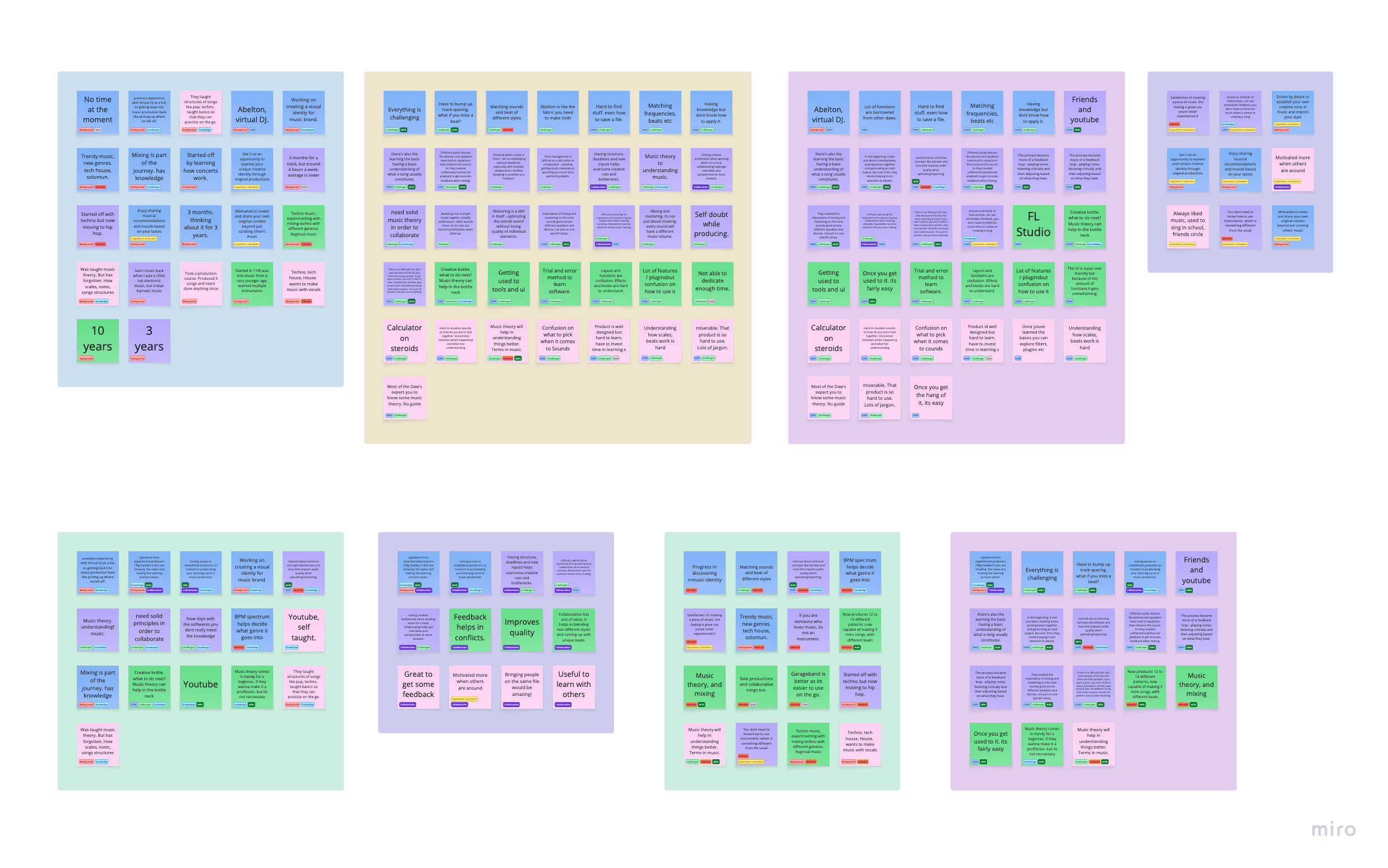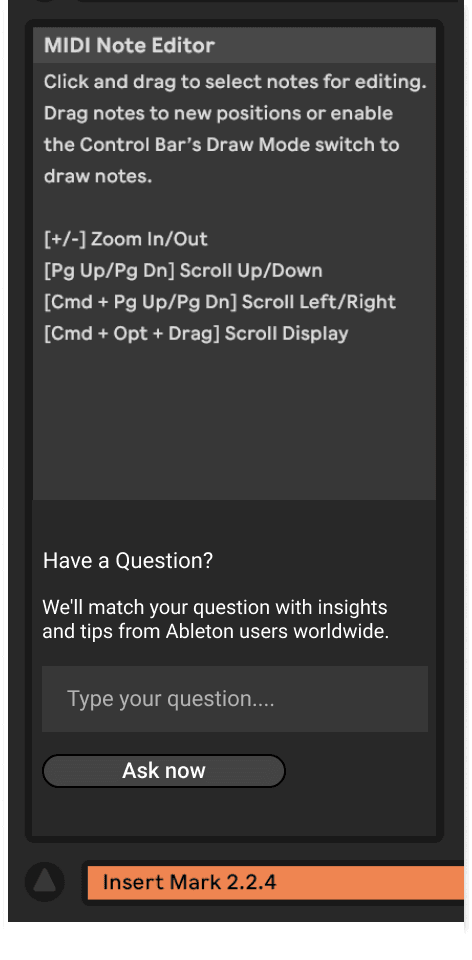Capstone Thesis 24’
Simplifying Ableton Live for Beginner Music Producers
Duration: 3 months
My Role: UX Research, Design Strategy, Concept Development
Methods: User Interviews, Co-design Workshop, Journey Mapping, Affinity Mapping, Conceptual Prototyping
How it started
Ever hear an amazing track and think, "I want to create something like that!" only to open music production software and feel completely lost?
I experienced this frustration firsthand. My excitement to create music crashed into Ableton Live's complex interface, and I watched as many aspiring producers abandoned their creative journey at this same roadblock.
Research Approach
Conducted 6 User interviews
Why beginners give up before the beat drops
I feel like I need a music production degree just to understand the interface. It's like an advanced calculator on steroids.
— Interview participant, complete beginner
Interface Complexity
Beginners face immediate cognitive overload from Ableton's feature-rich environment, creating uncertainty about where to start.
Disconnected Learning
The separation between youtube tutorials and the actual software forces constant context-switching that disrupts creative momentum.
Knowledge Gaps
Most newcomers lack fundamental music theory and production concepts to translate their creative ideas into reality.
Research Synthesis
I organized insights from interviews and observations using affinity mapping to identify underlying themes that went beyond surface-level problems.
Confidence Thresholds
Creating a first complete beat, no matter how simple, marked a critical psychological threshold for continued engagement.
Progression Uncertainty
Users struggled with determining their next learning steps, often bouncing between unrelated tutorials and creating knowledge gaps.
Flow State Interruption
The creative "flow state" was consistently broken when users needed to pause production to learn new techniques
User Journey Insights
First Week in Abelton
The Approach
From Research Insights to Design Framework
01
To address users' uncertainty about learning progression, I implemented the scaffolding framework, which provides:
Clear skill-building pathways with logical progression
Support that adapts to user competency level
Gradually increasing complexity as confidence builds
Example application: In the beat-making module, I designed progressive challenges that start with simple 4-beat patterns before introducing complex rhythms. Each step builds directly on previously mastered skills, with support elements that fade as proficiency increases.
02
To protect the creative flow state, I designed learning elements that integrate directly into the workflow:
Context-sensitive tooltips that appear at the moment of need
In-app guidance that eliminates switching between resources
Just-in-time support rather than front-loaded tutorials
03
Understanding the psychological importance of early wins, I created skill-building challenges designed to:
Target critical confidence-building milestones
Provide immediate feedback and reinforcement
Celebrate achievements to maintain motivation
01
Interactive Walkthrough
This component addresses the immediate "Where do I even start?" problem that overwhelms first-time users.
Key features:
Instead of exposing users to the entire interface at once, my solution gradually introduces UI elements as users need them.
Visual cues draw attention to relevant controls at each learning stage, reducing cognitive load.
Technical jargon is translated into approachable explanations that connect to familiar concepts.
02
Learning Through Creation
After talking to users about my solution, I found that this was your most positively received component because it directly addresses the gap between watching tutorials and making music.
Key features:
Beat-Making Playground: A simplified environment for creating rhythms using visual pattern blocks that correspond to musical elements.
Ear Training Exercises: Interactive challenges that develop critical listening skills through pattern recognition and recreation.
Achievement System: Clear milestones that build confidence through tangible progress markers and gain quick wins
03
AI Ongoing Support System
This component harnesses the collective wisdom of the Ableton community, transforming years of forum discussions, tutorials, and expert advice into personalized, contextual guidance.
Key features:
Community-Trained AI: An intelligent assistant trained specifically on the vast knowledge base of the Ableton community forums, tutorials, and official documentation.
Step-by-Step Guided Instructions: Clear, concise procedures for accomplishing specific tasks, broken down into manageable steps.
Learning Resources: Targeted micro-tutorials that address specific challenges right when users need them.
Impact
While this solution hasn't been implemented at scale, feedback from testing indicates it would significantly improve the beginner experience:
Expected outcomes:
Reduced abandonment during first-time use
Faster transition from beginner to intermediate skill level
Increased creative output through removal of technical barriers
Stronger sense of accomplishment and motivation
Lessons
Learning by doing is far more effective than passive instruction for creative tools
Users need different levels of support at different stages of their journey
Community knowledge is a powerful, often underutilized resource for beginners






